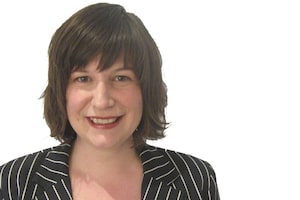Deborah Baic/The Globe and Mail
When it came to teaching my children to swim, I did what all parents do: I Outsourced. Lessons with an instructor, I figured, were the safest environment in which to teach a life skill.
It wasn't until my husband had jumped, fully clothed, into the rec centre pool to rescue my four-year-old daughter during her first class, that I questioned if I had done the right thing.
She had followed the twentysomething class instructor, who was with another child, from the shallow wading area into the deeper end. With the instructor facing the other way, she took a step down and her head submerged. From our seat, we could see her struggling to get to the surface. My husband made the plunge.
Almost by rote, parents enroll their kids in swimming programs. Enrolment in Red Cross swimming programs across the country is increasing, from approximately 1.1 million students in 2006 to 1.2 million in 2012. But sitting on the sidelines that day, I was struck by how disconnected I felt. When did parents, almost collectively, give up teaching their kids how to swim? You can outsource any number of seminal childhood lessons these days: bike riding, cooking, driving. But might it be better to be the teacher rather than merely a co-ordinator; to have a real sense of your child's capabilities, rather than relying on a stranger's observations?
Karen Murphy thinks so. The southern California mom is behind TeachYourKidstoSwim.com, which offers instruction, tips and tricks for parents who want to do it themselves. She was inspired to create the website after her son struggled in traditional swimming classes.
"He had just plateaued for a long time. I could see he wasn't enjoying it. Every time we went to class it was a struggle to get in the water," she said. "I think swimming is so much fun. It was sad for me that he wasn't getting that."
Ms. Murphy, who was in the process of becoming a lifeguard at a community pool, decided she would start teaching her son herself. She gathered information from books, the Internet and a network of parents who had taught their own children to swim or had been trained swimming teachers themselves. She spent some time learning about body mechanics and found that she was an effective teacher, especially because she knew what motivated her child.
"Being patient and being attuned to what your kids need is the most important part," she says. "If they are starting with a new teacher, they've got to cling to that person and they don't even trust that person. … it's hard to focus on getting familiar with just moving your body in this new way."
Kari Svenneby, a Toronto mother of two and an avid swimmer (taught by her father), says she's often approached by parents who want to know how her daughter, now 7, became so competent in the pool. Ms. Svenneby started teaching her kids to swim when they were still infants. She found the experience to be more than just pedagogical.
"It creates a bonding for me, it connects me to my childhood," she says. She started the website ActiveKidsClub.com, which now has 5,000 followers, as a place for parents to share creative outdoor experiences they have with their kids.
The instinct some parents are feeling to take charge of things like swimming lessons could be a reaction to the trend of "professionalized parenting," says Carl Honoré, author of Under Pressure: Putting the Child Back in Childhood.
"Over the last generation … we've raised the bar so high that we feel as parents we cannot do anything on our own, we always have to bring in the experts, we always have to spend a lot of money, we always have to outsource the job of child-rearing," he says. "And I think that has got to the point where it's backfiring on us."
But Lisa Okun, a co-ordinator at Safe Kids Canada, says that unless a parent is a certified instructor, they should leave swimming lessons to the professionals.
"Kids should be taught to swim by people who are certified and have been trained in swimming instruction and know how to teach kids what to do in the water," she says, adding there's a skill progression that's important to get right, and keep age-appropriate.
Lesley Lacny, a registered psychologist and family counsellor based in Toronto, says a parent's effectiveness as a teacher depends on a number of factors, including the parent's ability in the water, the relationship dynamic between them and their child, and the parent's teaching style, which may not be compatible with the child's learning style.
"Some children may prefer more independence and prefer to learn from someone outside of the family who is a 'new face,' and potentially has more patience."
Parents should think about what kind of teacher they would be, she said. "Do you have the patience and ability to create a supportive and fun learning environment, or do you feel you may create unnecessary pressure or expectations in the water?"
In the end, Mr. Honoré says the right decision is the one that feels right for your family."If you feel it makes sense to say no to professional lessons, or a mix of professional lessons and homespun, find the right balance that works for you."
After some discussion, my own family has decided we're not ready to throw out the concept of standardized instruction. But we are going to switch to private, one-on-one swimming lessons. And my husband is going to take on the role of instructor while we're at the lake this summer – he'll be appropriately dressed for it, this time.
Special to The Globe and Mail
 Shelley White
Shelley White